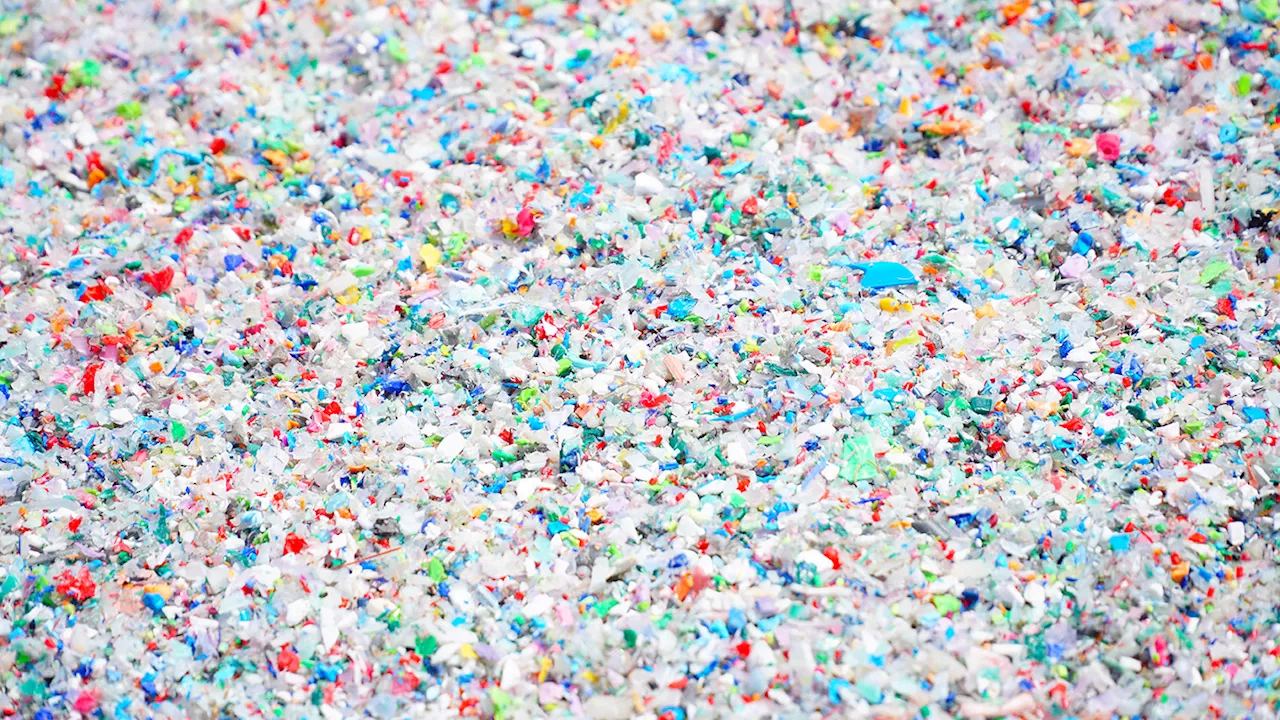Brain samples contained 10 times more microplastics than other organs.
The study looked at brain samples collected in 2024, finding a 50% increase in microplastics compared to samples collected back in 2016.
Dr. Stephanie Widmer, a board-certified medical toxicologist and emergency medicine physician, who was not involved in the study, told ABC News that the study's findings are not yet cause for major concern. It is also not yet known what specific health risk this amount of microplastics inside a person's blood stream could potentially have, the study says.
Widmer said the study does not prove that microplastics cause diseases, nor does it explain how they enter the brain.
United States Latest News, United States Headlines
Similar News:You can also read news stories similar to this one that we have collected from other news sources.
 Microplastics and Nanoplastics Found in High Concentrations in Human Brain TissueA new study published in February 2023 reveals the alarming presence of microplastics and nanoplastics in human brain tissue, raising concerns about the potential health implications of these tiny plastic particles. Researchers found significantly higher concentrations of MNPs in brain tissue compared to other organs, challenging the notion that the blood-brain barrier effectively protects the brain from these pollutants. The study also highlights the unexpected shapes and types of plastic found in the brain, suggesting that the long-term effects of microplastic exposure remain largely unknown.
Microplastics and Nanoplastics Found in High Concentrations in Human Brain TissueA new study published in February 2023 reveals the alarming presence of microplastics and nanoplastics in human brain tissue, raising concerns about the potential health implications of these tiny plastic particles. Researchers found significantly higher concentrations of MNPs in brain tissue compared to other organs, challenging the notion that the blood-brain barrier effectively protects the brain from these pollutants. The study also highlights the unexpected shapes and types of plastic found in the brain, suggesting that the long-term effects of microplastic exposure remain largely unknown.
Read more »
 Bacteria Found Thriving in Fish Brains, Raising Questions About Human MicrobiomeRecent research has provided compelling evidence that bacteria can exist in the brains of healthy vertebrates, specifically fish. This challenges the long-held belief that the brain is protected from outside microbial invasion by the blood-brain barrier. The study, published in Science Advances, found diverse communities of bacteria in the brains of salmon and trout, with some species showing adaptations to survive in brain tissue and cross the blood-brain barrier. While fish physiology differs from humans, this discovery raises intriguing possibilities about the existence of a human brain microbiome and its potential impact on neurobiology.
Bacteria Found Thriving in Fish Brains, Raising Questions About Human MicrobiomeRecent research has provided compelling evidence that bacteria can exist in the brains of healthy vertebrates, specifically fish. This challenges the long-held belief that the brain is protected from outside microbial invasion by the blood-brain barrier. The study, published in Science Advances, found diverse communities of bacteria in the brains of salmon and trout, with some species showing adaptations to survive in brain tissue and cross the blood-brain barrier. While fish physiology differs from humans, this discovery raises intriguing possibilities about the existence of a human brain microbiome and its potential impact on neurobiology.
Read more »
 Neurogenesis and BDNF: Potential Factors in John Famechon's RecoveryThis article explores the role of neurogenesis and brain-derived neurotrophic factor (BDNF) in the recovery of former World Boxing Champion John Famechon after a severe brain injury. It delves into the research on acquired brain injury and the brain's natural healing mechanisms, highlighting the potential of adult neurogenesis and BDNF's role in promoting neuronal connections and plasticity. The article also examines the importance of antioxidants in combating the damaging effects of free radicals and oxidative stress.
Neurogenesis and BDNF: Potential Factors in John Famechon's RecoveryThis article explores the role of neurogenesis and brain-derived neurotrophic factor (BDNF) in the recovery of former World Boxing Champion John Famechon after a severe brain injury. It delves into the research on acquired brain injury and the brain's natural healing mechanisms, highlighting the potential of adult neurogenesis and BDNF's role in promoting neuronal connections and plasticity. The article also examines the importance of antioxidants in combating the damaging effects of free radicals and oxidative stress.
Read more »
 A Breakthrough For Cognitive Decline, Long COVID & Brain InjuriesThis may be the key to unlocking our brain's full regenerative potential.
A Breakthrough For Cognitive Decline, Long COVID & Brain InjuriesThis may be the key to unlocking our brain's full regenerative potential.
Read more »
 12 Habits To Prevent 'Brain Rot''Brain rot' refers to the negative health effects of excessive social media use. Habits can help you stay mentally sharp and limit digital distractions.
12 Habits To Prevent 'Brain Rot''Brain rot' refers to the negative health effects of excessive social media use. Habits can help you stay mentally sharp and limit digital distractions.
Read more »
 Scrubs Revival: The Possible Absence of the Brain TrustThe upcoming Scrubs revival is generating excitement, but some original characters, particularly those part of the beloved Brain Trust, might not return. Factors like the passing of Sam Lloyd (Ted) and the retirement of Johnny Kastl (Doug) make their reappearances unlikely. Rob Maschio's (The Todd) potential return is also uncertain due to his acting hiatus and the character's potential for controversy in today's TV landscape. The Janitor, played by Neil Flynn, remains the only guaranteed member of the Brain Trust to return. This could lead to interesting storylines as the Janitor recruits new members to his eccentric group.
Scrubs Revival: The Possible Absence of the Brain TrustThe upcoming Scrubs revival is generating excitement, but some original characters, particularly those part of the beloved Brain Trust, might not return. Factors like the passing of Sam Lloyd (Ted) and the retirement of Johnny Kastl (Doug) make their reappearances unlikely. Rob Maschio's (The Todd) potential return is also uncertain due to his acting hiatus and the character's potential for controversy in today's TV landscape. The Janitor, played by Neil Flynn, remains the only guaranteed member of the Brain Trust to return. This could lead to interesting storylines as the Janitor recruits new members to his eccentric group.
Read more »
